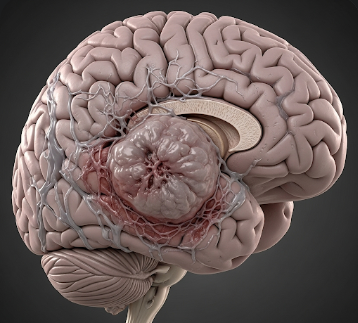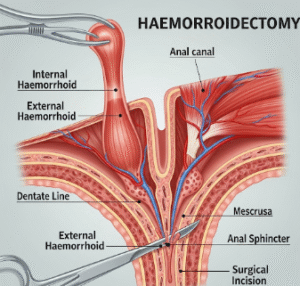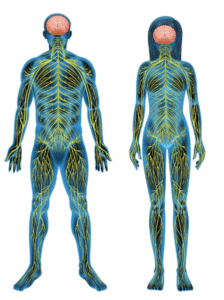Overview
A brain tumor is an abnormal growth of cells in the brain, which can be benign (non-cancerous) or malignant (cancerous). Brain tumors may originate in the brain (primary) or spread from other parts of the body (secondary or metastatic). They can compress surrounding brain tissue, disrupt neurological function, and increase intracranial pressure, leading to a variety of symptoms.
In Korea, brain tumors are treated in advanced neuro-oncology centers, neurosurgery departments, and specialized cancer hospitals. Korean medical facilities offer state-of-the-art imaging, minimally invasive surgeries, targeted therapies, and rehabilitation programs to manage tumors effectively and improve patient outcomes.
What is a Brain Tumor?
A brain tumor represents the abnormal proliferation of cells within brain tissue or surrounding structures. Tumors are classified based on origin, malignancy, and growth behavior:
- Primary brain tumors: Arise from brain cells or supporting tissues
- Gliomas: From glial cells (astrocytomas, oligodendrogliomas, glioblastomas)
- Meningiomas: From meninges; usually benign but may compress brain tissue
- Pituitary adenomas: Affect hormone production and nearby structures
- Medulloblastomas: Common in children, affecting the cerebellum
- Secondary (metastatic) brain tumors: Spread from cancers elsewhere, like lungs, breast, or skin (melanoma)
Brain tumors vary in size, growth rate, and location, which influences symptoms, treatment, and prognosis.
Symptoms
Symptoms depend on tumor size, location, and growth rate:
- Persistent or worsening headaches
- Nausea and vomiting, often worse in the morning
- Seizures or convulsions
- Cognitive and personality changes, including confusion, memory loss, or behavioral shifts
- Weakness or numbness in limbs or face
- Speech difficulties or aphasia
- Visual disturbances, such as blurred vision or double vision
- Loss of balance or coordination
- Fatigue and drowsiness
Some benign tumors may be asymptomatic for years, discovered incidentally during imaging for unrelated conditions.
Causes
The exact cause of brain tumors is often uncertain, but contributing factors include:
- Genetic mutations: Altered genes regulating cell growth and apoptosis
- Family history: Rare inherited syndromes like Li-Fraumeni or Turcot syndrome
- Environmental exposures: Ionizing radiation, carcinogens, or chemical exposure
- Immunosuppression: Increased risk of primary CNS lymphomas
- Previous cancers: Metastatic spread from primary tumors elsewhere
Risk Factors
- Age: Certain tumors, like glioblastoma, are more common in adults, while medulloblastomas affect children
- Gender: Some tumors, such as meningiomas, are more common in women
- Genetic predisposition or family history of brain tumors
- Radiation exposure to the head or brain
- Immune system deficiencies
- History of cancer elsewhere in the body
Complications
Brain tumors can cause serious complications, especially if untreated:
- Increased intracranial pressure, leading to headaches, nausea, and vision changes
- Seizures and epilepsy
- Neurological deficits: Weakness, paralysis, or speech problems
- Cognitive decline or personality changes
- Hydrocephalus: Accumulation of cerebrospinal fluid due to obstruction
- Brain herniation, a life-threatening condition in large tumors
- Death, particularly in high-grade malignant tumors
Prevention
There is no guaranteed prevention, but certain measures may reduce risk:
- Avoid unnecessary radiation exposure
- Healthy lifestyle: Balanced diet, regular exercise, and avoidance of tobacco and alcohol
- Early detection and treatment of cancers elsewhere to prevent metastatic brain tumors
- Genetic counseling for families with inherited syndromes
- Prompt evaluation for neurological symptoms, such as persistent headaches or seizures
Treatment Options in Korea
Diagnosis
Accurate diagnosis is essential for effective treatment:
- MRI (Magnetic Resonance Imaging): Gold standard for detailed tumor imaging
- CT scan: Rapid assessment of tumors, especially in emergencies
- MR spectroscopy: Evaluates tumor metabolism
- PET scan: Assesses tumor activity and metastasis
- Biopsy: Confirms tumor type and grade through histopathology
- Genetic and molecular testing: Guides targeted therapies and personalized treatment
Medical Management
- Chemotherapy: Systemic or localized agents to kill cancer cells
- Targeted therapy: Drugs tailored to specific molecular mutations
- Immunotherapy: Enhances the immune system to attack tumor cells
- Corticosteroids: Reduce swelling and inflammation around tumors
- Anticonvulsants: Manage or prevent seizures caused by tumor activity
Surgical Management
- Craniotomy: Removal of tumor tissue while preserving brain function
- Minimally invasive neurosurgery: Endoscopic approaches for deep or hard-to-reach tumors
- Stereotactic surgery: Precision-guided removal or biopsy
- Debulking surgery: Reduces tumor mass to relieve pressure when full removal is not possible
Radiation Therapy
- External beam radiation therapy (EBRT)
- Stereotactic radiosurgery (SRS): Precise high-dose radiation for small or complex tumors
- Proton therapy: Advanced therapy available in specialized Korean centers
Supportive Care
- Rehabilitation: Physical, occupational, and speech therapy for deficits
- Psychological support: Counseling for patients and families
- Palliative care: Symptom management for advanced or inoperable tumors
- Nutritional and pain management
- Long-term follow-up: Periodic imaging to detect recurrence or new tumors
Prognosis
The prognosis depends on tumor type, grade, location, size, and treatment response:
- Low-grade tumors: High survival rates with surgical resection and adjuvant therapy
- High-grade malignant tumors, like glioblastoma, have poorer prognosis even with aggressive treatment
- Early detection and intervention significantly improve outcomes
- Korean hospitals provide multidisciplinary care combining neurosurgery, oncology, and rehabilitation, enhancing survival and functional recovery
- Long-term monitoring ensures early detection of recurrence and management of complications
With advanced imaging, surgical techniques, and personalized therapies, Korea offers world-class treatment for brain tumors, aiming to extend survival, minimize neurological deficits, and improve quality of life.













